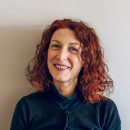Global hunger is on the rise. After a prolonged decline, the number of people suffering from hunger and malnutrition in 2017 has reached an estimate of 821 million. Those who are most affected are smallholder farmers, fisherfolks, livestock herders and communities who depend on forests and other renewable natural resources for their survival. Africa remains the continent with highest prevalence of undernourishment. The crisis is getting worse in South America, while Asia remains the continent with the highest number of hungry people in absolute terms – a total of 515 million people. Women, especially in Latin America, are experiencing severe food insecurity. According to the report, one in three women of reproductive age is anemic.
In 2017, over 50 million children under five years of age are affected by wasting – low weight for height, a strong predictor of mortality for children under five – and nearly 151 million were still stunted, meaning they have low height for their age, a result of long-term undernutrition. At the same time, 38 million children under five are overweight, and adult obesity is worsening with one in eight adults being obese. Undernutrition, overweight and obesity coexist in many countries, both in the North and the South.
How can the world accept the rise in hunger, just a couple of years after adopting the ambitious Sustainable Development Goal of eradicating hunger? How can all of us, consumers, wealthy people, well-fed citizens, accept that still so many people go to bed hungry, in an era when we produce enough food to feed the world?
We can’t. When we look at the root causes of hunger, this inequity becomes even more unacceptable. Last year, the Food and Agriculture Organization pointed to violent conflicts and climate change as the major drivers of food insecurity. This year it’s shedding more light on climate change. Climate extremes are one of the key drivers of increased hunger and are reversing the positive results achieved thus far in reducing hunger. Drought, in particular, causes more than 80% of the total damage and losses in agriculture, with climate-related disasters accounting for 80% of all major internationally reported disasters. In 2017, climate shocks were a key driver of food crises.
If we consider that wealthy countries are the world’s major polluters and thus have a greater responsibility for climate change, we who live in these countries must also feel our responsibility for the millions of hungry people.
Our current fossil fuels-based economy is making climate change worse. Industrial agriculture and intensive livestock systems contribute heavily to greenhouse gas emissions. Deforestation, driven by expansion of mining, biofuel production, timber and industrialized, mechanized agriculture, deprive ecosystems of their capacity to self-regenerate.
If we are going to stop climate change, we, especially those living in wealthier countries, have to change our lifestyles. We have to opt for more sustainable consumption patterns, with fresh and nutritious food coming from local farmers in local food markets, transition to renewable energy and phase out of fossil fuel as energy source. As consumers, we play a critical role in reversing the destructive trends of our economy. We can choose which energy to use, which food to buy, and what meat to eat. And we can tell corporations to make human rights the foundation of their business models.
Governments also have a big role to play. They must first and foremost take up their responsibilities in stopping harmful policies such as incentives for the fossil fuel economy. They must start promoting sustainable production models, provide incentives for transitioning to renewable energy, and increase funding for climate change adaptation programs.
So far, this isn’t going well. The Green Climate Fund was established to channel funding to support developing countries to act on climate change, but the Fund’s last Board meeting collapsed without taking any decisions.
Climate negotiations leading up to the COP24 in Poland are at a crossroads, and the recent climate meetings in Bangkok failed without agreeing on any concrete next steps.
In reaction to the 2007 food crisis, governments had established the Committee on World Food Security and the Global Agriculture and Food Security Program to promote policy convergence and funding support to agricultural development in poorer countries. Now, even as hunger is rising, food security has almost disappeared from the donors’ agenda, and more and more food rights activities are being criminalized.
Rich countries are turning their backs on the millions of people affected by hunger and climate disasters, ignoring the huge responsibilities and the big debt they owe towards the poorest countries. The U.S. is playing a leading role in blocking any advancements in climate negotiations and scaling down commitments to promote food security and nutrition.
This is unacceptable. We have to voice our dissent by any means necessary and demand our governments to help fight climate change now.







